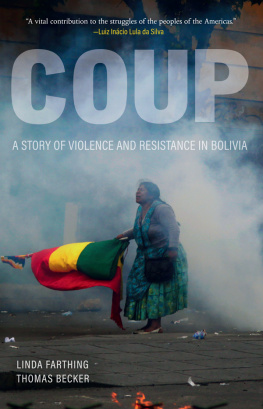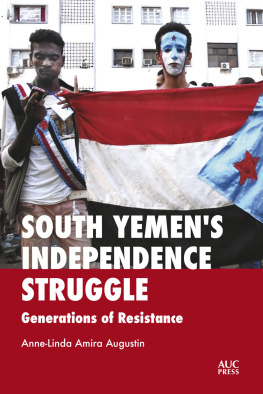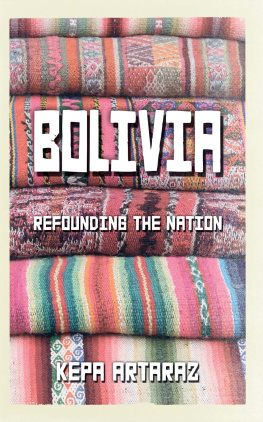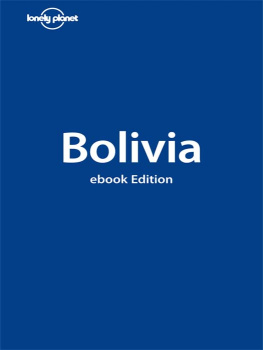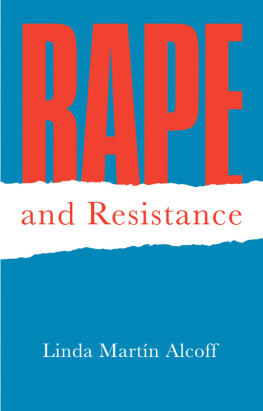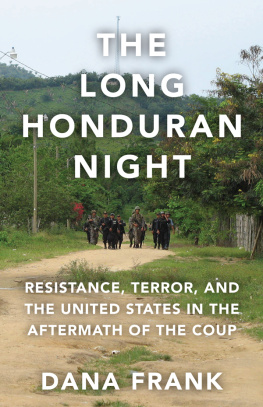PRAISE FOR COUP
This books makes a vital contribution to the struggles of the peoples of the Americas to defend themselves against the coups dtat that anti-democratic elites of the hemisphere have unleashed again, albeit cloaked in new garments. Paraguay in 2012, Brazil in 2016 and 2018, Bolivia in 2019 all suffered coups, with intensifying violence, revealing that slaveholding, racist, and colonial legacies are still very much alive among the wealthiest in the region. The victory of Bolivias popular movementscourageous, heroic, and swiftresulting in the extraordinary victory of Lucho Arce and the return of Evo Moraless MAS party in 2020, serve as an inspiring example for neighboring states. Once again the lesson is clear: whenever the will of the people may be expressed freely through the ballot, proposals that lead to greater equality, more just distribution of income, and vigorous efforts to combat hunger and poverty will prevail. But this is possible only with robust popular participation in the decision-making process. LUIZ INCIO LULA DA SILVA, former president of Brazil
Coup tells the story of Bolivias MAS party, the ousting of its popular Indigenous president Evo Morales, and the following wave of abuses committed by the authoritarian ez regime. The book is a vital contribution to our understanding of how reactionary forces leveraged a bogus claim of fraud to overthrow the elected president. It is essential reading for those committed to democracy and social justice in the Americas. Coup highlights the need to remain on alert in electoral times and serves as a warning about the cunning preparation of coups dtat. Todays coups are more sophisticated than those of previous decades, but they are equally ruthless and equally dangerous. MADRES DE LA PLAZA DE MAYOLINEA FUNDADORA, mothers of Argentinas disappeared
Future historians will look back at the reversal of Bolivias 2019 coup as an event equal in importance to Fidel Castros defeat of the US-organized invasion at the Bay of Pigs. Linda Farthing and Thomas Becker have provided us with an indispensable analysis to the sources of the conflict and how the forces of hope triumphed. GREG GRANDIN, Pulitzer Prizewinning author of The End of the Myth: From the Frontier to the Border Wall in the Mind of America
In the international media discourse that emerged in late 2019 after Evo Morales was forced into exile and Jeanine ez declared herself president of Bolivia, some voices remained conspicuously absent: those of the Bolivians living through the turmoil. Farthing and Becker set out to challenge this trend, crafting a narrative based on the testimony of dozens of Bolivian activists, political figures, and intellectuals. Stitched together in a compelling and lucid narrative, the insights of those on the groundnot only about the brutal right-wing repression under ez but also about both the advances and shortcomings of Moraless time in powerprovide the clearest picture yet of what happened in Bolivia in 2019. DR. CHRISTY THORNTON, assistant professor, Johns Hopkins University and former executive director of the North American Congress on Latin America (NACLA)
Coup is a comprehensive account of the democratic disruption that Bolivia suffered in 2019. With remarkable handling of sources, Linda Farthing and Thomas Becker present a critical vision of Bolivia as well as the political, social, and democratic challenges the country faces. Captivating read! EDUARDO RODRIGUEZ VELTZ, former president of Bolivia
Measured and methodical, Farthing and Beckers analysis of the right-wing coup dtat in Bolivia is mandatory reading for anyone attempting to come to grips with the countrys recent past. Sharp, expeditious prose mirrors the often frenetic pace of political developments in recent years. Rooted in a blend of on-the-ground reportage and a mastery of the best local sources of journalism and social-scientific inquiry, Coup contex-tualizes the socio-political gains and contradictions of the era of Evo Morales, unearths the root causes of his ouster from office, and surveys the violent regime of Jeanine ez installed in the coups aftermath. In a period of recurring crises of global capitalism and an attendant rise in authoritarian forms of right-wing rule, the significance of this book extends well beyond the borders of Bolivia. JEFFERY R. WEBBER, author of Red October: Left-Indigenous Struggles in Modern Bolivia

2021 Linda Farthing and Thomas Becker
Published in 2021 by
Haymarket Books
P.O. Box 180165
Chicago, IL 60618
773-583-7884
www.haymarketbooks.org
ISBN: 978-1-64259-684-7
Distributed to the trade in the US through Consortium Book Sales and Distribution (www.cbsd.com) and internationally through Ingram Publisher Services International (www.ingramcontent.com).
This book was published with the generous support of Lannan Foundation and Wallace Action Fund.
Special discounts are available for bulk purchases by organizations and institutions. Please email for more information.
Cover design by Jamie Kerry. Cover photo by Gaston Brito Miserocchi.
Library of Congress Cataloging-in-Publication data is available.
For my children and godchildren: Minka, Anamaya,
Gavriel, Luli, Clarita and Karen who support
and inspire me more than you know.
Linda
For the brave families who lost loved ones during the 20192020
Bolivia conflicts and continue to fight for justice. La lucha sigue.
Thomas
FOREWORD
The volume you have before you, Coup, tells the story of the ousting of President Evo Morales in rich, nuanced detail. It does so by unravelling the complex layers of injustice, exploitation, and racism that have cursed Bolivia since the arrival of Spanish conquistadores in 1524. The narrative in this book presents the immediate events leading to the coup, as well as the structural forces at work in the demise of the Morales presidency. The authors underscore the broader context of a deeply unequal hemisphere and world. Understanding these structural forces, as well as the proximate causes of the coup, is essential if one is to move beyond the simplistic and inaccurate narratives that dominated most English-language explanations of what happened in Bolivia in the last quarter of 2019. Indeed, the authors implicit contention throughout (and the value of their work) is that only by understanding (at least superficially) five centuries of exploitive, racist rule by an elite minority of European descent can one begin to appreciate the intensity of the animosity of the traditional ruling classes towards Evo Moraless popular, multicultural, egalitarian project.
This animosityas Farthing and Becker detailanimated the campaign to drive Evo Morales, the MAS (Movimiento al Socialismo or Movement for Socialism) party, and the Indigenous majority out of power. The campaign, in turn, was facilitated by a well-prepared and disproven narrative of widespread election fraud, knowingly (or unwittingly) parroted by Western observers, most media sources, and powerful states. The combination of ill-intentioned distortion with amplification and legitimation that led to the seizure of power by an unknown, Evangelical Christian zealot, Senator Jeanine ez, while particular in its details, followed an increasingly common outline for twenty-first century attacks on democracy.



